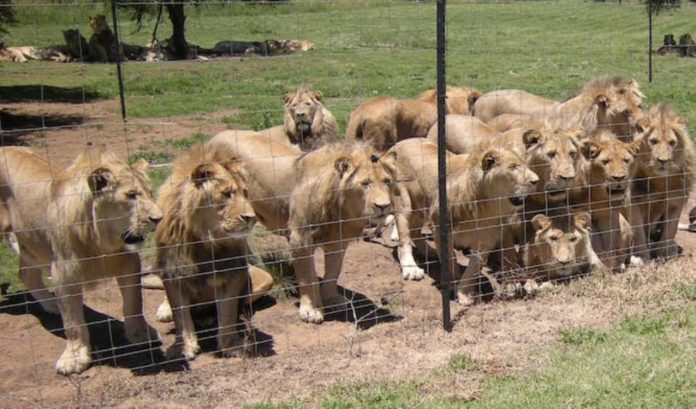Lions being Farmed in South Africa: The Controversial Industry
A recent incident at the OR Tambo International Airport in Johannesburg, South Africa, shed light on the controversial practice of breeding lions in captivity. On 23 June 2023, a man was arrested while attempting to board a flight to Vietnam with five lion carcasses in his luggage. The use of lion bones in traditional medicines is common in Vietnam, making this seizure highly significant.
The farming of lions for commercial purposes has been prevalent in South Africa since the 1990s. These majestic wild animals are exploited for various purposes, including entertainment for tourists (such as cub petting and “walk with lions” experiences), canned trophy hunting (where lions are hunted in enclosed spaces), and the production of traditional medicine. Their bones, which are exported to Asia, are particularly in demand for the production of traditional Asian medicines.
The Lion Farming Industry in South Africa
Official records from 2019 indicate that there are over 350 facilities in South Africa holding approximately 8,000 lions. In contrast, the current wild lion population in the country is estimated to be around 3,500. The industry also extends to breeding other big cat species like tigers, cheetahs, leopards, jaguars, and hybrids. However, the exact number of lions and other species in commercial lion farms remains unknown due to a lack of audits and registration.
One major challenge lies in the regulation of the lion farming industry. Currently, there is a patchwork of legislation at the national level, and governance falls to the provincial nature conservation authorities. The lack of a centralized national system hampers transparency and enforcement. Additionally, at an international level, lion bone exports are regulated under the Convention on International Trade in Endangered Species of Wild Fauna and Flora (CITES). However, a high court ruling in 2019 deemed the lion bone export quota unconstitutional, resulting in a “zero quota” for lion skeleton exports.
The Problems with Lion Farming
Lion farming in South Africa is highly controversial. While some argue that it contributes significantly to the economy, a 2021 report highlighted the risks it poses to public health, the conservation of wild lions, and the country’s reputation. In response, the Department of Forestry, Fisheries, and the Environment expressed its intention to halt the domestication and exploitation of lions.
However, despite these intentions, little has changed, and captive breeding and canned hunting of lions continue. It is necessary to implement a strategy that includes a mandatory time-bound termination of the entire lion farming industry. In the interim, lion farms should be required to cease breeding and canned hunting operations to aid enforcement agencies.
Neil D’Cruze, Global Head of Wildlife Research at World Animal Protection, and Jennah Green, Wildlife Research Manager at World Animal Protection, emphasize the importance of taking immediate action to address this controversial industry and protect the welfare of lions in South Africa.

